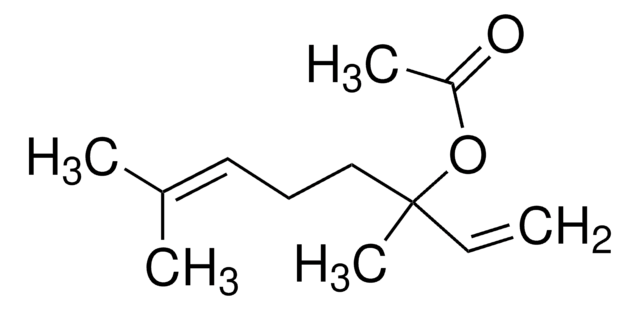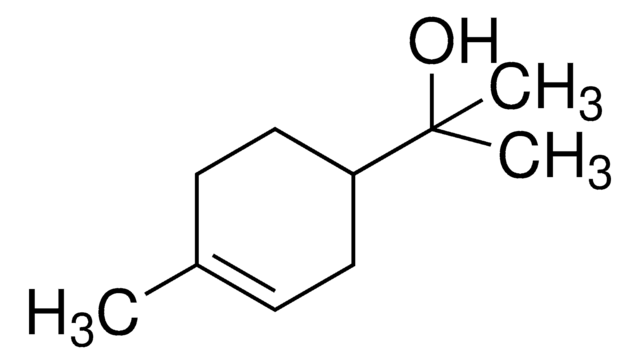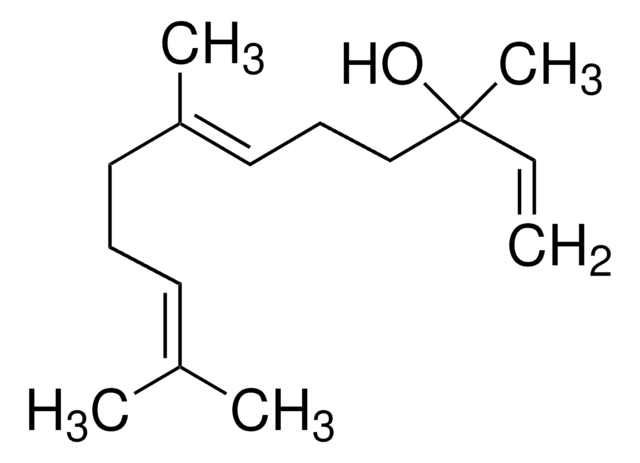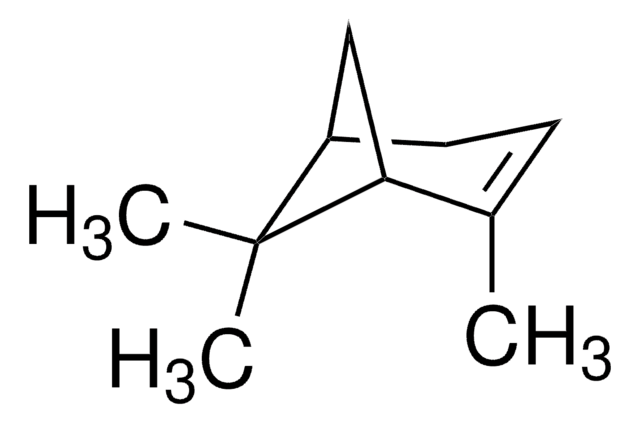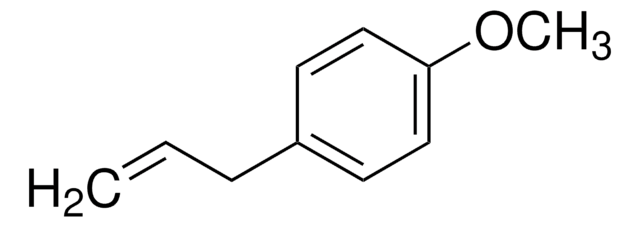74856
(−)-Linalool
analytical standard
Synonym(s):
(R)-(−)-Linalool, (R)-(−)-3,7-Dimethyl-1,6-octadien-3-ol
About This Item
Recommended Products
grade
analytical standard
Quality Level
Assay
≥97.0% (sum of enantiomers, GC)
optical activity
[α]20/D −20±2°, neat
shelf life
limited shelf life, expiry date on the label
technique(s)
HPLC: suitable
gas chromatography (GC): suitable
refractive index
n20/D 1.4615 (lit.)
n20/D 1.462
bp
198 °C (lit.)
density
0.862 g/mL at 20 °C (lit.)
application(s)
cleaning products
cosmetics
flavors and fragrances
food and beverages
personal care
format
neat
SMILES string
C\C(C)=C\CC[C@@](C)(O)C=C
InChI
1S/C10H18O/c1-5-10(4,11)8-6-7-9(2)3/h5,7,11H,1,6,8H2,2-4H3/t10-/m0/s1
InChI key
CDOSHBSSFJOMGT-JTQLQIEISA-N
Looking for similar products? Visit Product Comparison Guide
General description
Application
- Tea samples using headspace-solid phase microextraction, followed by enantioselective gas chromatography with flame ionization detection (HS-SPME-GC-FID).
- Food matrices using headspace-solid phase microextraction (HS-SPME) coupled to gas chromatography–combustion-isotope ratio mass spectrometry (GC–C-IRMS).
Signal Word
Warning
Hazard Statements
Precautionary Statements
Hazard Classifications
Eye Irrit. 2 - Skin Irrit. 2 - Skin Sens. 1 - STOT SE 3
Target Organs
Respiratory system
Storage Class Code
10 - Combustible liquids
WGK
WGK 3
Flash Point(F)
166.3 °F - closed cup
Flash Point(C)
74.6 °C - closed cup
Personal Protective Equipment
Choose from one of the most recent versions:
Already Own This Product?
Find documentation for the products that you have recently purchased in the Document Library.
Customers Also Viewed
Our team of scientists has experience in all areas of research including Life Science, Material Science, Chemical Synthesis, Chromatography, Analytical and many others.
Contact Technical Service


